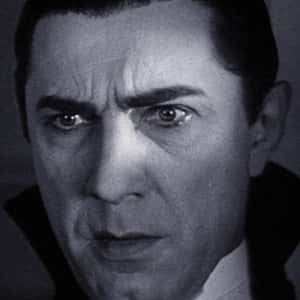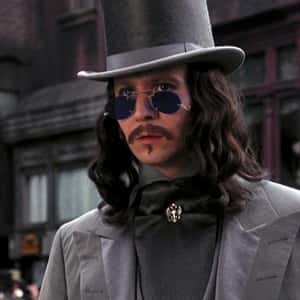Terence Fisher's 1958 classic Dracula, also known as Horror of Dracula, reinvigorated the vampire mythos by injecting it with vibrant color, visceral intensity, and unforgettable performances. Christopher Lee assumes the mantle of Count Dracula in what would become one of his most famous roles, imbuing the character with a menacing and seductive charm that remains unmatched to this day. Peter Cushing's portrayal of Van Helsing adds another layer of gravitas to the film, as he brings intelligence and determination to his pursuit of the undead count. Dracula also marked the beginning of Hammer Films' esteemed run of Gothic horror productions, making it a landmark in both vampire cinema and British filmmaking.
- Released: 1931
- Directed by: Tod Browning
Francis Ford Coppola's lush and visually sumptuous retelling of Bram Stoker's Dracula stands as an ambitious adaptation that seeks to remain faithful to its literary source material while also providing a fresh perspective on the oft-told tale. With standout performances from Gary Oldman as the tragic Count Dracula, Winona Ryder as Mina Harker, Anthony Hopkins as Professor Van Helsing, and Keanu Reeves as Jonathan Harker; this film brings new depth and complexity to these classic characters. The lavish production design, breathtaking costumes, and innovative practical effects make it not only a feast for the senses but also an exploration into themes of love, loss, and redemption that offers much more than just scares.
- Released: 1992
- Directed by: Francis Ford Coppola
In the annals of horror cinema, few films can match the chilling atmosphere and timeless appeal of 1931's Dracula. Directed by Tod Browning and starring Bela Lugosi in his iconic role as Count Dracula, this adaptation of Bram Stoker's classic novel sets a high standard for Gothic horror with its shadowy visuals, eerie score, and evocative performances. Lugosi's magnetic portrayal of the suave vampire has become synonymous with the character, while Edward Van Sloan's turn as vampire hunter Van Helsing provides a worthy adversary. A touchstone for generations of horror fans and filmmakers alike, Dracula remains essential viewing for anyone seeking to understand the roots of vampire lore in cinema.
- Released: 1958
- Directed by: Terence Fisher
F.W. Murnau's silent masterpiece Nosferatu stands as one of the earliest and most influential vampire films ever made. Drawing heavily from Bram Stoker's novel, this unauthorized adaptation introduces audiences to Count Orlok - a haunting figure played by Max Schreck with an unforgettable appearance that has become synonymous with early horror cinema. The film's striking visual style, inspired by German Expressionism, creates an eerie atmosphere that lingers long after viewing. A testament to its enduring impact, Nosferatu continues to inspire filmmakers today and remains a seminal work in both horror and world cinema.
- Released: 1922
- Directed by: F.W. Murnau
Continuing Hammer Films' foray into Dracula lore is 1966's Dracula: Prince of Darkness, directed by Terence Fisher and once again featuring Christopher Lee as the titular bloodsucker. Despite being mostly absent from dialogue, Lee's imposing presence looms large over this atmospheric sequel set in Transylvania many years after the events depicted in 1958's Horror of Dracula. With adept supporting turns from Barbara Shelley and Andrew Keir, this entry builds on its predecessor’s success while further establishing the Gothic aesthetic that would define Hammer horrors for years to come.
- Released: 1966
- Directed by: Terence Fisher
As the third entry in Hammer Films' Dracula series, Dracula Has Risen from the Grave sees director Freddie Francis taking the reins for a thrilling tale that expertly balances scares and sensuality. Christopher Lee once again dons his cape as Count Dracula, seeking revenge against those who have disrupted his slumber. With its vivid color palette, memorable set pieces, and strong performances - including Veronica Carlson as the heroine Maria - this film continues to showcase why Hammer's Gothic horrors remain enduring classics within vampire cinema.
- Released: 1968
- Directed by: Freddie Francis
Ranked by







